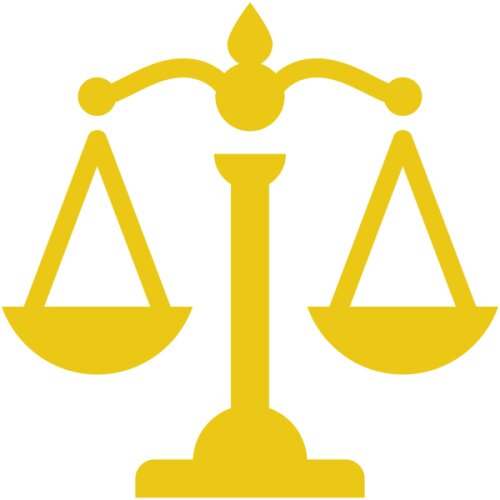Best Discrimination Lawyers in Newcastle
Share your needs with us, get contacted by law firms.
Free. Takes 2 min.
List of the best lawyers in Newcastle, South Africa
About Discrimination Law in Newcastle, South Africa
Discrimination law in Newcastle, South Africa is aimed at preventing unfair treatment based on various personal characteristics such as race, gender, age, disability, and more. South Africa’s strong legislative framework, based on the Constitution and the Promotion of Equality and Prevention of Unfair Discrimination Act (PEPUDA), seeks to address and redress instances of discrimination in various facets of life, including the workplace, education, and service provision. Newcastle, being an integral location within the KwaZulu-Natal province, aligns with national laws while also catering to regional specificities.
Why You May Need a Lawyer
Individuals may need legal assistance in cases where they feel they have been subjected to unfair treatment or discrimination. Common scenarios include employment discrimination, where an employee might face unequal treatment due to their race or gender, or public services discrimination, where individuals may be unfairly denied access to services. Legal guidance is invaluable in navigating complaints, understanding one’s rights and options, and pursuing justice and compensation.
Local Laws Overview
In Newcastle, as in the rest of South Africa, the Constitution serves as the highest law, emphasizing equality and human dignity. The PEPUDA is pivotal for addressing discrimination both in public and private sectors. It prohibits discrimination in employment, education, housing, and more. The Labour Relations Act and the Employment Equity Act further provide avenues for addressing discrimination specifically within employment settings, ensuring fair treatment and equitable opportunities.
Frequently Asked Questions
What constitutes discrimination under South African law?
Discrimination occurs when a person is treated less favorably than others based on grounds such as race, gender, age, disability, etc.
How can I prove that I have been discriminated against?
To prove discrimination, one must show that they were treated unfavorably compared to others in a similar situation and that this treatment was based on personal characteristics.
What steps can I take if I experience discrimination at work?
First, document the incidents, then address the issue internally if possible, such as through HR. If unresolved, considering legal advice and possibly lodging a complaint with relevant bodies like the Commission for Conciliation, Mediation and Arbitration (CCMA) may be necessary.
Is there a time limit for filing a discrimination complaint?
Yes, often there are time limits for lodging complaints, typically within six months from the incident, so timely action is crucial.
Do anti-discrimination laws apply to private organizations?
Yes, both public and private sector entities must comply with anti-discrimination laws in South Africa.
Can I take legal action if I face discrimination in accessing services?
Yes, if you face discrimination in accessing services, you may lodge a complaint or take legal action under the PEPUDA.
What remedies are available for discrimination victims?
Remedies may include compensation, reinstatement in employment, policy changes, or rehabilitation services depending on the case specifics.
Can I report discrimination anonymously?
While initial reports can sometimes be made anonymously, formal proceedings will typically require personal identification.
Who can assist me with a discrimination claim?
Experienced lawyers, the CCMA, and the South African Human Rights Commission are key resources for assistance and advice on discrimination claims.
Are there support groups for discrimination victims?
Yes, several non-profit organizations and community groups offer support services, advocacy, and counseling for discrimination victims.
Additional Resources
The South African Human Rights Commission, Commission for Gender Equality, and the CCMA are vital governmental bodies that provide guidance and support. Non-profit organizations like the Legal Resources Centre offer additional support and legal advice for individuals facing discrimination.
Next Steps
If you need legal assistance regarding discrimination, start by consulting with a qualified lawyer who specializes in discrimination law. Gathering relevant documentation and evidence of the discriminatory acts will be beneficial. It might also be helpful to contact local advocacy groups or government bodies that can offer guidance and possibly mediate or assist with filing official complaints. Being informed and seeking early advice can make a meaningful difference in handling discrimination cases effectively.
Lawzana helps you find the best lawyers and law firms in Newcastle through a curated and pre-screened list of qualified legal professionals. Our platform offers rankings and detailed profiles of attorneys and law firms, allowing you to compare based on practice areas, including Discrimination, experience, and client feedback.
Each profile includes a description of the firm's areas of practice, client reviews, team members and partners, year of establishment, spoken languages, office locations, contact information, social media presence, and any published articles or resources. Most firms on our platform speak English and are experienced in both local and international legal matters.
Get a quote from top-rated law firms in Newcastle, South Africa — quickly, securely, and without unnecessary hassle.
Disclaimer:
The information provided on this page is for general informational purposes only and does not constitute legal advice. While we strive to ensure the accuracy and relevance of the content, legal information may change over time, and interpretations of the law can vary. You should always consult with a qualified legal professional for advice specific to your situation.
We disclaim all liability for actions taken or not taken based on the content of this page. If you believe any information is incorrect or outdated, please contact us, and we will review and update it where appropriate.








